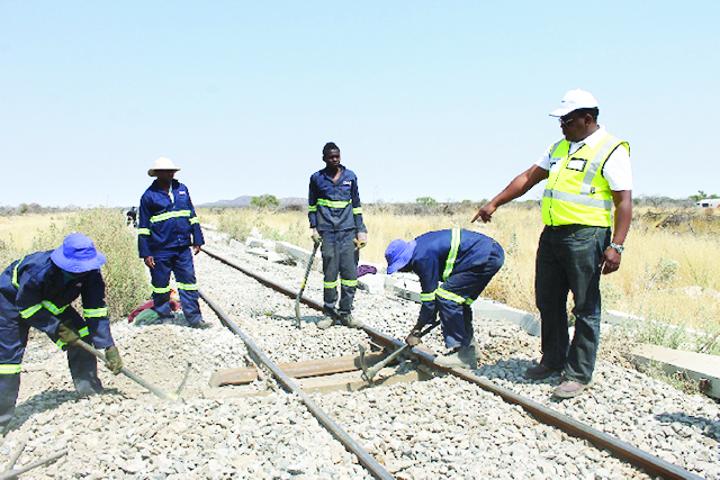Africa-Press – Namibia. THE Ministry of Labour, Industrial Relations, and Employment Creation has entered a collective agreement on minimum wages and conditions of employment in the construction sector.
This became effective as of 3 November, and follows a request by the Construction Industries Federation (CIF) of Namibia and the Metal and Allied Namibian Workers Union (Manwu). The agreement binds both members and non-members of the CIF and Manwu for a period of two years.
In a media statement, the acting executive director of labour, Lydia Indombo, says security guards at construction sites will now earn an amount of N$130,80 per 12-hour shift, compared to the previous amount of N$127,49 per 12-hour shift.
Artisans, leading hand steel fixers and leading hand welders will receive N$51,08 per hour. The semi-skilled category is topped by joiners who will be earning an amount of N$26,53, with scaffolders earning a minimum of N$18,66 per hour. The collective agreement cautions that reduced remuneration causes low levels of productivity.
“An employer must not reduce the pay of an employee if the minimum productivity levels are not reached without addressing the employee’s performance, and the employer has to first resort to providing additional training before initiating disciplinary and/or incapacity procedures,” Indombo says.
CIF general manager Bärbel Kirchner says the conditions of the agreement are mandatory and apply to everyone operating in the sector. Kirchner says the increase in the minimum wage is 2,6% for the first year of the agreement, and 2,6% for the second year.
The current minimum wage for the sector is N$17,38 per hour. Kirchner says other benefits for employees in the sector include a service allowance equal to 150 hours of an employee’s wage, which is to be paid as part of their December payment, before they go on annual leave.
“It is also mandatory that all employees are registered with the Namibian Building Workers Pension Fund.
“We are happy that our negotiated collective agreement has now been gazetted. This will ensure a level playing field with regards to wages in our sector, and would minimise the impact of labour costs as a differentiating factor when bidding for contracts,” she says.
Justina Emvula, the secretary general of Manwu, says the construction sector has been under pressure since 2016, and workers continue to experience financial pressure as the cost of basic needs keeps escalating.
“Since 2018 workers have received no increase, and considering the current pandemic, this increase is accepted by the workers with the view that it can make a difference – even though it may not address all their needs,” she says.
Emvula says not awarding projects to local contractors increases the already high unemployment rate and the prevalence of hazardous work in the sector.
“Therefore, the government and private sector clients should listen to us and start prioritising local contractors to boost our local economy.
“We are therefore calling on all contractors and their employees to work together. We understand the frustration of a lack of jobs, or jobs which are not sustainable, but this increase would make a difference. We are also busy engaging those in power to start prioritising local contractors, and the immediate implementation of the construction council,” she says.
For More News And Analysis About Namibia Follow Africa-Press






